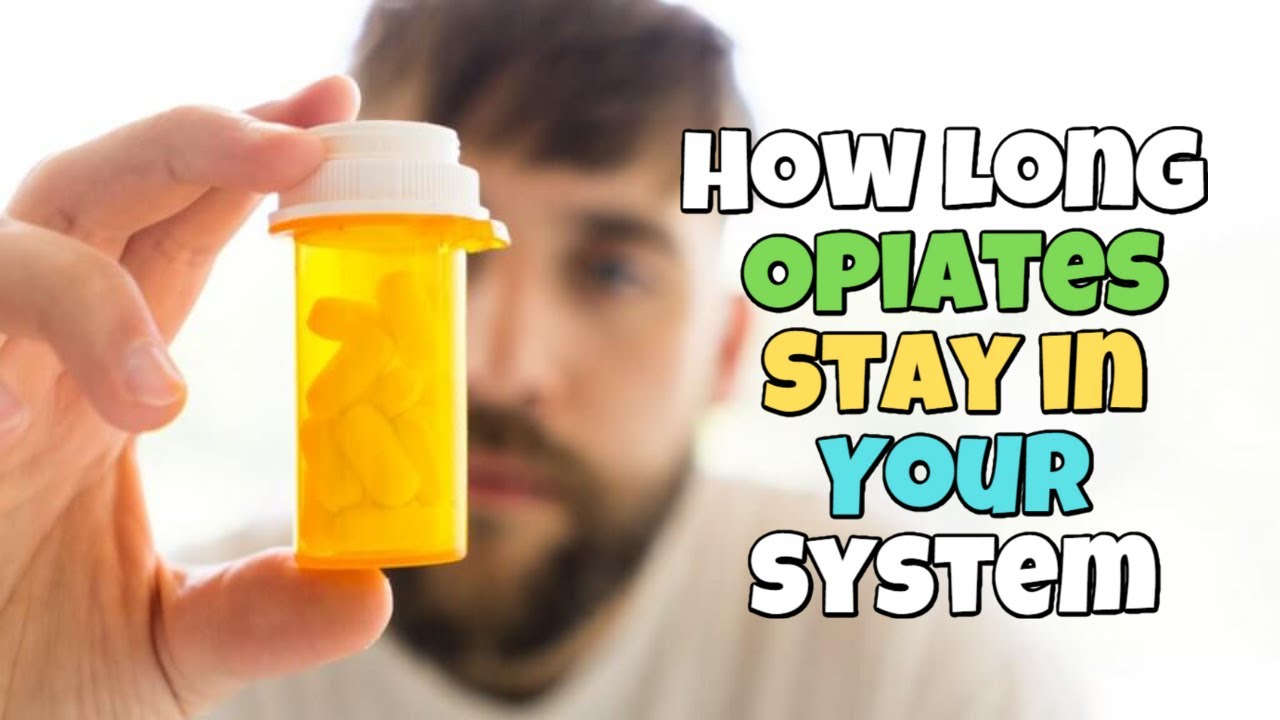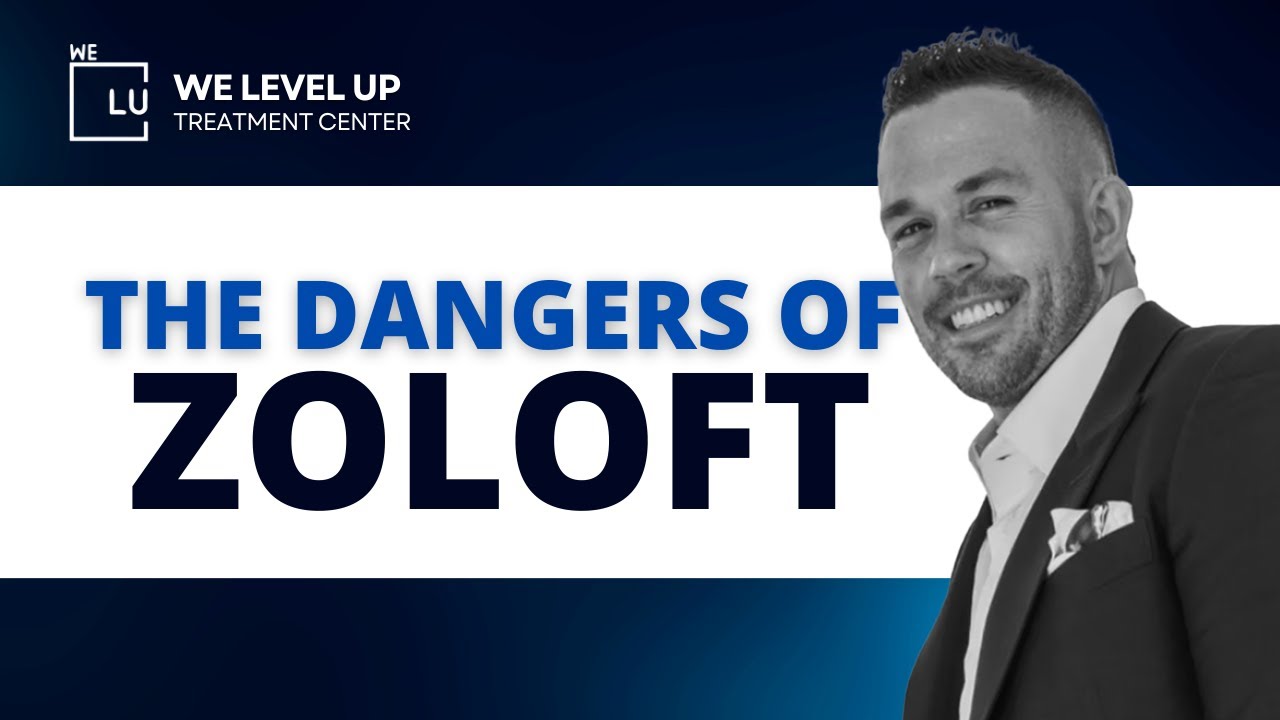Toradol (ketorolac) and tramadol (generic Ultram) are FDA-approved prescription pain medications. Toradol, an NSAID, eases pain and reduces inflammation by possibly blocking prostaglandin production, which is responsible for pain and swelling. Tramadol, a DEA Schedule IV opioid analgesic, acts by binding to opioid receptors and inhibiting norepinephrine and serotonin reuptake to alleviate pain.
Despite both being pain relievers, Toradol and tramadol differ significantly. Explore further for detailed insights into Toradol vs Tramadol.
If you or someone you know is suffering from Tramadol addiction and withdrawals, the We Level Up Treatment Centers can help. Speak with our hotline specialists and discover the support and professional-accredited addiction treatment programs we offer.
What is Toradol?
Toradol contains ketorolac, classified as a nonsteroidal anti-inflammatory drug (NSAID).
FDA-Approved Uses:
- Short-term management of moderately severe acute pain requires strong pain management akin to opioids.
- Post-surgical pain control.
Administration:
- Initially administered via intravenous (IV) or intramuscular (IM) injection.
- It can be continued orally thereafter.
Risks and Duration:
- Associated risks limit its use to a maximum of five days.
- Approved for adults aged 18 and above.
Off-Label Uses:
- Off-label use occurs for:
- Moderate to severe pain in children.
- Pain from metastatic bone cancer.
- Emergency room treatment for acute migraines.
Common Side Effects:
- Possible side effects include nausea, stomach pain, indigestion, and headaches.
What is Tramadol?
Tramadol is a type of medicine regulated by the DEA. It’s considered a Schedule IV controlled substance, which means it has medical uses but can also be misused or cause addiction. This drug used to be unscheduled but was later classified as a Schedule IV drug due to its potential for abuse. While it’s seen as safer and less addictive than some other pain-relieving drugs, there’s limited research backing this claim.
Doctors commonly prescribe tramadol in the United States, especially after surgeries, for acute pain relief. About 75% of over 500,000 patients received tramadol as part of their post-surgery treatment. Unfortunately, in 2020, around 1.7 million people, approximately 0.5% of individuals aged 12 or older, misused prescription tramadol products.
Tramadol works differently compared to other opioids. It not only affects opioid receptors but also impacts the reuptake of certain chemicals like norepinephrine and serotonin, which can enhance its ability to manage pain.
What Are the Main Differences Between Toradol vs Tramadol?
- Drug Class: Toradol is an NSAID, while Tramadol is an opioid analgesic.
- Administration: Toradol comes in various forms, including injections and tablets, whereas Tramadol is primarily in tablet form.
- Uses: Toradol is typically used for short-term pain relief after surgery, while Tramadol is used for moderate to moderately severe pain for a varied duration.
- Duration: Toradol is generally limited to a maximum of five days of treatment, while Tramadol can be used for short-term or longer durations based on the prescriber’s advice.
- Age Restrictions: Both medications are typically advised for individuals aged 17 and older.
| Feature | Toradol | Tramadol |
|---|---|---|
| Drug Class | NSAID | Opioid Analgesic |
| Brand/Generic Status | Generic (ketorolac) | Generic |
| Generic Name | ketorolac (ketorolac tromethamine) | – |
| Brand Name | – | Ultram |
| Forms | In short, some patients continue for longer based on the prescriber’s direction. | Tablet, extended-release capsule, extended-release tablet |
| Standard Dosage | In short, some patients continue for longer based on prescriber’s direction | The dose is slowly titrated up to 50mg to 100mg every 4 to 6 hours. Maximum of 400 mg per day |
| Typical Treatment Duration | 5 days or less | In short, some patients continue for longer based on the prescriber’s direction |
| Typical User | People age 17 years and older | People age 17 years and older |

Skip To:
Learn More:
- Is Tramadol Addictive? Risks and Dangers of Tramadol Addiction
- Tramadol Withdrawal Symptoms, Timeline, & Detox Treatment
- Tramadol vs Hydrocodone: Are They Similar? Which one is Better For Pain?
- Tramadol vs Oxycodone, Which is Better? Side Effect Comparison
- Is Tramadol A Narcotic?
- Tramadol in Pregnancy
- Tramadol Serotonin Syndrome
- Vicodin vs Norco, What’s The Difference & How Do They Compare?
- How Long Does Hydrocodone Stay in Urine?
- What is Norco? Norco Drug For Severe Pain Information
- The Dangers of Hydrocodone Addiction, Symptoms & Treatment
- Hydrocodone Side Effects, Uses, Addiction and More
- Opiate Withdrawal
- Opioid Withdrawal Timeline
- Opioid Withdrawal Symptoms
Get Help. Get Better. Get Your Life Back.
Searching for Accredited Drug and Alcohol Rehab Centers Near You? We Level Up Texas Is Opening Soon!
Even if you have failed previously and relapsed, or are in the middle of a difficult crisis, we stand ready to support you. Our trusted behavioral health specialists will not give up on you. When you feel ready or just want someone to speak to about therapy alternatives to change your life call us. Even if we cannot assist you, we will lead you to wherever you can get support. There is no obligation. Call our network hotline today.
FREE Addiction Hotline – Call 24/7
Differences in Side Effects of Toradol vs Tramadol
| Toradol | Tramadol |
|---|---|
| Headache | Agitation |
| Heartburn | Nervousness |
| Upset Stomach | Anxiety |
| Nausea | Seizures (Convulsions) |
| Vomiting | Skin Rash |
| Diarrhea | Dizziness |
| Stomach Pain | Spinning Sensation |
| Bloating | Hallucinations |
| Gas | Fever |
| Constipation | Fast Heart Rate |
| Dizziness | Overactive Reflexes |
| Drowsiness | Nausea |
| Sweating | Vomiting |
| Ringing in the Ears | Upset Stomach |
Which One is More Effective?
A comparative study in India evaluated Toradol against tramadol in managing post-operative pain after maxillofacial surgery among 50 adults. Both medications were administered intramuscularly (IM). While both drugs significantly reduced pain, tramadol exhibited superior pain control compared to Toradol at every hour and was better tolerated.
In a separate study in Mexico, the efficacy of these drugs for postoperative pain was investigated. This study compared oral Toradol to intramuscular tramadol and found Toradol to be more effective in providing pain relief.
These studies were conducted in countries where tramadol was administered via intramuscular injection. In the United States, tramadol is commonly prescribed as an oral tablet for outpatient use, while Toradol (ketorolac) is typically administered intravenously or intramuscularly by healthcare professionals. Subsequently, applying these findings to standard U.S. prescription practices is challenging. Both drugs can be highly effective in pain management, with several variables to consider.
When considering Toradol or tramadol, one should determine the most suitable medication should involve consultation with a healthcare provider, who can evaluate individual medical history, existing conditions, and potential interactions with other medications.
Get Help. Get Better. Get Your Life Back.
Searching for Accredited Drug and Alcohol Rehab Centers Near You? We Level Up Texas Is Opening Soon!
Even if you have failed previously and relapsed, or are in the middle of a difficult crisis, we stand ready to support you. Our trusted behavioral health specialists will not give up on you. When you feel ready or just want someone to speak to about therapy alternatives to change your life call us. Even if we cannot assist you, we will lead you to wherever you can get support. There is no obligation. Call our network hotline today.
FREE Addiction Hotline – Call 24/7What Are the Conditions Treated by Toradol and Tramadol?
Toradol:
- Indication: Used in adults for short-term management of moderately severe acute pain, often post-surgery, necessitating opioid-level pain relief.
- Treatment Duration: Should not exceed five days.
Tramadol:
- Indication: Prescribed for adults experiencing moderate to moderately severe pain requiring an opioid pain reliever when non-opioid alternatives are insufficient or poorly tolerated.
| Condition | Toradol | Tramadol |
|---|---|---|
| Short-term (5 days or less) management of moderately severe acute pain requiring opioid level analgesia, usually in a postoperative setting | Yes | No |
| Short-term (5 days or less) management of moderately severe acute pain requiring opioid-level analgesia, usually in a postoperative setting | No | Yes |
Coverage and Cost Comparison
Toradol:
- Typically covered by insurance, with varying Medicare Part D coverage.
- The out-of-pocket cost for generic Toradol (20 tablets of 10 mg) is approximately $50. A SingleCare coupon can reduce the cost to $18 for the generic medication.
Tramadol:
- Usually covered by insurance, including Medicare Part D.
- The out-of-pocket cost for tramadol (60 tablets of 50 mg) is about $43. With a SingleCare discount coupon, the cost can be as low as $12, depending on the pharmacy used.

Tramadol and Toradol-Related Statistics
Despite declining prescription rates, opioid overdose deaths remain a significant public health concern. Many opioid-related deaths are attributed to the misuse of prescription opioids or illicit opioids, such as heroin and fentanyl. Unfortunately, Norco hydrocodone is included in the problem.
There is a need for increased access to evidence-based treatments for opioid use disorder, such as medication-assisted treatment (MAT) and behavioral therapies, to address the addiction crisis effectively.
1.6 Million
An estimated 1.6 million people in the US were reported to have opioid use disorder in 2019, indicating a diagnosed addiction to opioids.
Source: NCBI
70%
In 2020, over 69,000 drug overdose deaths in the US, and approximately 70% involved opioids.
Source: CDC
18%
In 2019, only about 18% of people with opioid use disorder received specialty treatment for their addiction.
Source: NSDUH
Bioavailability
Bioavailability refers to the extent and rate at which a drug or substance is absorbed into the bloodstream or becomes available at the site of action after administration. It measures the amount of the administered dose that enters the systemic circulation and can produce an effect.
Regarding bioavailability, tramadol hydrochloride tablets boast a 75% bioavailability, whereas extended-release tramadol hydrochloride tablets range between 85% to 90%.
Start a New Life
Begin with a free call to an addiction & behavioral health treatment advisor. Learn more about our dual-diagnosis programs. The We Level Up treatment center network delivers recovery programs that vary by each treatment facility. Call to learn more.
- Personalized Care
- Caring Accountable Staff
- World-class Amenities
- Licensed & Accredited
- Renowned w/ 100s 5-Star Reviews
We’ll Call You
Interactions of Tramadol and With Other Drugs
Interactions with other drugs differ for Toradol and tramadol:
Toradol Interactions:
- Anticoagulants: Potential interactions with heparin or warfarin, requiring careful patient monitoring.
- NSAIDs: Avoid concomitant use due to increased risk of gastrointestinal (GI) bleeding and heightened side effects.
- Diuretics: Taking Toradol with diuretics may elevate the risk of kidney failure.
- Blood Pressure Medications: Combining Toradol with ACE inhibitors or ARBs could lead to kidney issues, especially in dehydrated patients.
- SSRI Antidepressants: The risk of GI bleeding escalates; concurrent use should be avoided.
Tramadol Interactions:
- Benzodiazepines, CNS Depressants, Alcohol: Avoid concomitant use with tramadol.
- Serotonin-Increasing Drugs: Combining tramadol with serotonin-increasing medications (SSRIs, SNRIs, tricyclic antidepressants, triptans, muscle relaxants, MAO inhibitors) may lead to serotonin syndrome, a life-threatening condition.
- MAOIs: Allow at least a 14-day interval between tramadol and MAOIs.
- Enzyme Inducers/Inhibitors: Tramadol interacts with drugs that induce or inhibit enzymes.
| Drug | Drug Class | Toradol | Tramadol |
|---|---|---|---|
| Heparin | Anticoagulants | Yes | Yes (warfarin) |
| Warfarin | Anticoagulants | Yes | Yes (warfarin) |
| Aspirin | NSAIDs | Yes | No |
| Ibuprofen | NSAIDs | Yes | No |
| Meloxicam | NSAIDs | Yes | No |
| Nabumetone | NSAIDs | Yes | No |
| Naproxen | NSAIDs | Yes | No |
| Furosemide | Diuretics | Yes | Yes |
| Hydrochlorothiazide | Diuretics | Yes | Yes |
| Lithium | Antimanic agent | Yes | Yes |
| Methotrexate | Antimetabolite | Yes | Yes |
| Benazepril | ACE inhibitors | Yes | Yes |
| Candesartan | ARB (angiotensin receptor blockers) | Yes | Yes |
| Enalapril | ACE inhibitors | Yes | Yes |
| Irbesartan | ARB (angiotensin receptor blockers) | Yes | Yes |
| Lisinopril | ACE inhibitors | Yes | Yes |
| Losartan | ARB (angiotensin receptor blockers) | Yes | Yes |
| Ramipril | ACE inhibitors | Yes | Yes |
| Telmisartan | ARB (angiotensin receptor blockers) | Yes | Yes |
| Valsartan | ARB (angiotensin receptor blockers) | Yes | Yes |
| Carbamazepine | Antiepileptic drugs | Yes | Yes |
| Phenytoin | Antiepileptic drugs | Yes | Yes |
| Citalopram | SSRI antidepressants | Yes | Yes |
| Escitalopram | SSRI antidepressants | Yes | Yes |
| Fluoxetine | SSRI antidepressants | Yes | Yes |
| Fluvoxamine | SSRI antidepressants | Yes | Yes |
| Paroxetine | SSRI antidepressants | Yes (clonazepam and diazepam) | Yes |
| Sertraline | SSRI antidepressants | Yes | Yes |
| Alprazolam | Benzodiazepines | Yes (clonazepam and diazepam) | Yes |
| Clonazepam | Benzodiazepines | Yes (clonazepam and diazepam) | Yes |
| Diazepam | Benzodiazepines | Yes (clonazepam and diazepam) | Yes |
| Codeine | Opioids | No | Yes |
| Fentanyl | Opioids | No | Yes |
| Hydrocodone | Opioids | No | Yes |
| Methadone | Opioids | No | Yes |
| Morphine | Opioids | No | Yes |
| Oxycodone | Opioids | No | Yes |
| Alcohol | Alcohol | Yes | Yes |
| Duloxetine | SNRI antidepressants | Yes | Yes |
| Desvenlafaxine | SNRI antidepressants | Yes | Yes |
| Venlafaxine | SNRI antidepressants | Yes | Yes |
| Amitriptyline | Tricyclic antidepressants | Yes | Yes |
| Desipramine | Tricyclic antidepressants | Yes | Yes |
| Imipramine | Tricyclic antidepressants | Yes | Yes |
| Nortriptyline | Tricyclic antidepressants | Yes | Yes |
| Rizatriptan | Triptans | Yes | Yes |
| Sumatriptan | Triptans | Yes | Yes |
| Baclofen | Muscle relaxants | No | Yes |
| Cyclobenzaprine | Muscle relaxants | No | Yes |
| Metaxalone | Muscle relaxants | No | Yes |
| Phenelzine | MAOI (MAO inhibitors) | No | Yes (separate use by at least 14 days) |
| Seleg |
Opening Soon! First-Class Facilities & Amenities
World-Class High-Quality Addiction & Mental Health Rehabilitation Treatment
Coming Soon! Rehab Centers TourRenowned Addiction Centers. Serene Private Facilities. Inpatient Rehab Programs Vary.
FREE Addiction Hotline – Call 24/7Proven recovery success experience, backed by a Team with History of:
15+
Years of Unified Experience
100s
5-Star Reviews Across Our Centers
10K
Recovery Success Stories Across Our Network
- Low Patient to Therapist Ratio
- Onsite Medical Detox Center
- Comprehensive Dual-Diagnosis Treatment
- Complimentary Family & Alumni Programs
- Coaching, Recovery & Personal Development Events
Tramadol Withdrawal Detox
Tramadol detoxification ranges in severity from mild to severe, influenced by the level of usage and medications involved. It’s essential to conduct detox under medical supervision due to potential discomfort. Typically, a doctor manages the process by gradually reducing the dose and monitoring symptoms over several weeks.
A proper tapering approach usually limits Tramadol withdrawal symptoms to 5-7 days. Symptoms persisting beyond a week are termed post-acute withdrawal symptoms (PAWS). PAWS may include anxiety, depression, mood swings, insomnia, reduced appetite, irritability, and concentration difficulties, lasting 18-24 months but diminishing over time.
Medical support for managing withdrawal symptoms may involve:
- Metoclopramide for nausea and vomiting.
- Loperamide for diarrhea.
- Ibuprofen or acetaminophen for muscle pain.
- Clonidine for anxiety and sweating.
- Valium for anxiety and insomnia.
- Buprenorphine (Subutex) to alleviate withdrawal symptoms.
- Suboxone (Buprenorphine and Naloxone combo) to mitigate withdrawal symptoms and counteract opioid effects.
Tramadol Addiction Treatment
Upon completing detox, individuals may undergo various therapies and treatments as part of an extensive treatment plan. Rehab after detox is crucial for addressing underlying addiction causes. Rehab occurs in different settings:
- Residential or Inpatient Rehab: This involves residing onsite throughout treatment, receiving constant care, and participating in diverse therapies. Suited for severe addiction cases or those lacking supportive home environments.
- Outpatient Rehab: Requires traveling to the facility for treatment and returning home afterward. Suitable for individuals with supportive environments and reliable transportation.
Ongoing medication maintenance is integral for maintaining sobriety and averting relapse. Medications like methadone, buprenorphine, or naltrexone may be part of this maintenance. Naltrexone, functioning as an opioid antagonist, blocks opioid effects, preventing highs if opioids are used again.
Treatment for opioid use disorder encompasses diverse therapies and supports:
- Counseling: Addresses addiction-related issues.
- Behavioral Therapies: Cognitive-behavioral therapy (CBT), contingency management (CM), or motivational interviewing foster positive behavioral changes.
- Family Therapy: Repairs relationships affected by addiction.
- Vocational Training: Assists in employment post-rehab.
- Case Management: Aids with social services such as securing basic needs and legal aid, allowing individuals to focus on recovery.
Aftercare is essential for ongoing recovery. Post-treatment, participating in individual counseling, mindfulness-based relapse prevention (MBRP), attending support groups like Narcotics Anonymous (NA), utilizing recovery apps, or engaging in recovery management checkups with treatment providers are beneficial.
Comprehensive treatment should address substance use and associated medical, psychological, social, vocational, and legal issues tailored to individual needs.
Why Choose We Level Up Treatment Center?
At We Level Up Treatment Center, our dedicated team of professionals is committed to guiding you through every step of your recovery journey. We prioritize your well-being and provide a nurturing environment conducive to healing and growth.
Take the first step towards recovery today. Contact us to begin your journey to a drug-free life. You don’t have to face addiction alone—we are here to help you reclaim control and achieve lasting sobriety.
Start a New Life
Begin with a free call to an addiction & behavioral health treatment advisor. Learn more about our dual-diagnosis programs. The We Level Up treatment center network delivers recovery programs that vary by each treatment facility. Call to learn more.
- Personalized Care
- Caring Accountable Staff
- World-class Amenities
- Licensed & Accredited
- Renowned w/ 100s 5-Star Reviews
We’ll Call You
How Long Do Opiates Stay in Your System?
Search We Level Up TX Toradol vs Tramadol, Differences in The Treatment For Pain Topics & Resources
SourceS
- National Library of Medicine. Ketorolac tromethamine – ketorolac tromethamine tablet, film coated. Toradol vs Tramadol, Tramadol versus Toradol, Tramadol vs Toradol – Related Articles
- Forrest JB, Heitlinger EL, Revell S. Ketorolac for postoperative pain management in children. Drug Saf. 1997;16(5):309-329. doi:10.2165/00002018-199716050-00003 Toradol vs Tramadol, Tramadol versus Toradol, Tramadol vs Toradol – Related Articles
- Vacha ME, Huang W, Mando-Vandrick J. The role of subcutaneous ketorolac for pain management. Hosp Pharm. 2015;50(2):108-112. doi:10.1310/hpj5002-108 Toradol vs Tramadol, Tramadol versus Toradol, Tramadol vs Toradol – Related Articles
- Taggart E, Doran S, Kokotillo A, Campbell S, Villa-Roel C, Rowe BH. Ketorolac in the treatment of acute migraine: a systematic review. Headache. 2013;53(2):277-287. doi:10.1111/head.12009 Toradol vs Tramadol, Tramadol versus Toradol, Tramadol vs Toradol – Related Articles
- National Library of Medicine. Tramadol hydrochloride tablet, coated. Toradol vs Tramadol, Tramadol versus Toradol, Tramadol vs Toradol – Related Articles
- Martyn-St James M, Cooper K, Kaltenthaler E, et al. Tramadol for premature ejaculation: a systematic review and meta-analysis. BMC Urol. 2015;15:6. doi:10.1186/1471-2490-15-6 Toradol vs Tramadol, Tramadol versus Toradol, Tramadol vs Toradol – Related Articles
- Lauerma H, Markkula J. Treatment of restless legs syndrome with tramadol: an open study. J Clin Psychiatry. 1999;60(4):241-244. doi:10.4088/jcp.v60n0407 Toradol vs Tramadol, Tramadol versus Toradol, Tramadol vs Toradol – Related Articles
- Toupin April K, Bisaillon J, Welch V, et al. Tramadol for osteoarthritis. Cochrane Database Syst Rev. 2019;5(5):CD005522. doi:10.1002/14651858.CD005522.pub3 Toradol vs Tramadol, Tramadol versus Toradol, Tramadol vs Toradol – Related Articles
- Boureau F, Legallicier P, Kabir-Ahmadi M. Tramadol in post-herpetic neuralgia: a randomized, double-blind, placebo-controlled trial. Pain. 2003;104(1-2):323-331. doi:10.1016/s0304-3959(03)00020-4 Toradol vs Tramadol, Tramadol versus Toradol, Tramadol vs Toradol – Related Articles
- Harati Y, Gooch C, Swenson M, et al. Double-blind randomized trial of tramadol for the treatment of the pain of diabetic neuropathy. Neurology. 1998;50(6):1842-1846. doi:10.1212/wnl.50.6.1842 Toradol vs Tramadol, Tramadol versus Toradol, Tramadol vs Toradol – Related Articles






